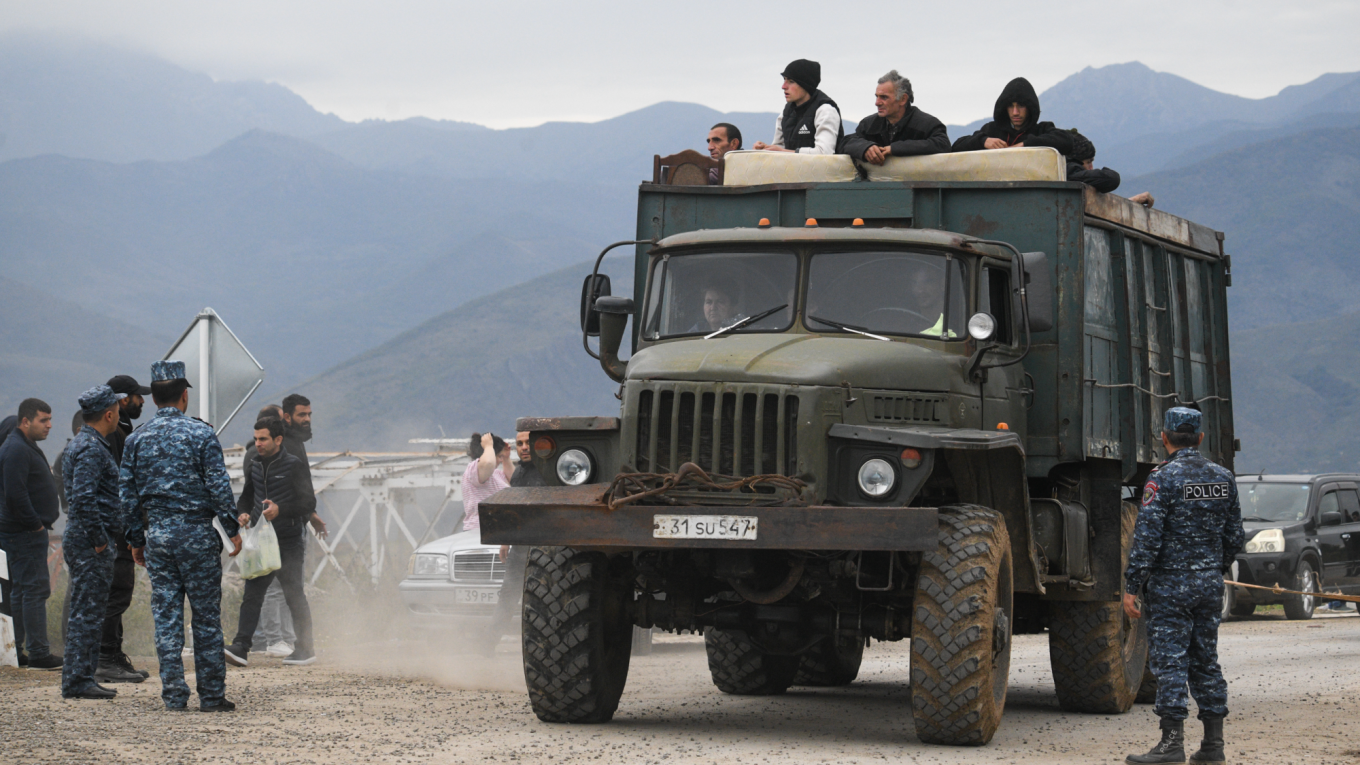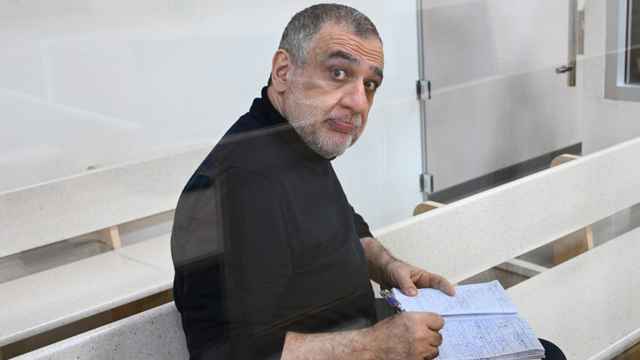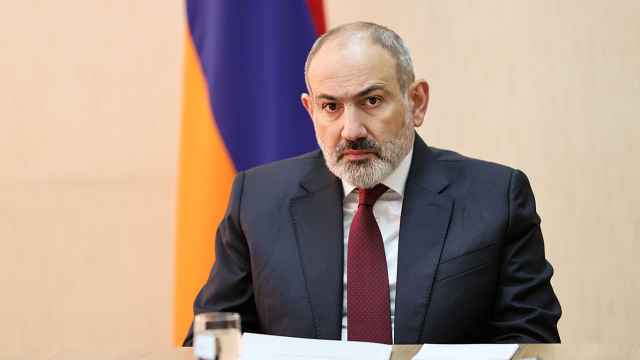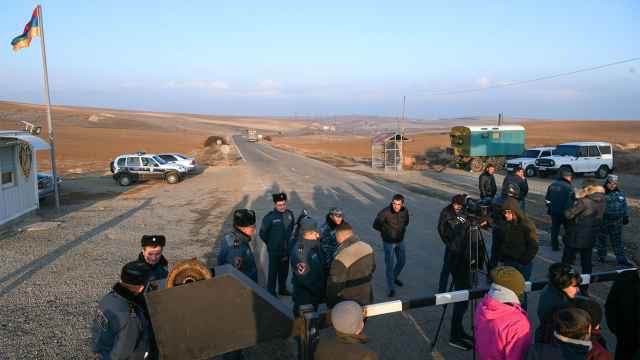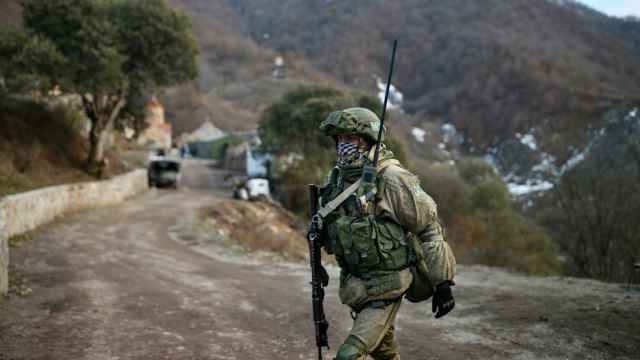The leader of Armenian separatists, who were ousted from the Nagorno-Karabakh region of Azerbaijan this year, on Friday said his previous decree ordering the dissolution of separatist institutions was not valid.
The statement appeared to undo a historic move by the separatists to dissolve the disputed territory that was at the center of two costly wars between Armenia and Azerbaijan.
Azerbaijan sent troops to Karabakh on Sept. 19. After just one day of fighting, the Armenian separatist forces who had controlled the disputed region for three decades surrendered and agreed to reintegrate with Baku.
On Sept. 26, separatist president Samvel Shahramanyan signed a decree ordering the dissolution of the separatist institutions by Jan. 1, 2024.
The breakaway republic "will cease to exist," by the year's end, the decree said.
But in a surprise move on Friday, Shahramanyan rolled back on the announcement in comments given in Yerevan, the capital of Armenia.
"There is no document... of the Republic of Artsakh [Karabakh] stipulating the dissolution of government institutions."
His office told AFP separately that the Sept. 26 decree was "empty paper," adding: "No document can lead to the dissolution of the republic, which was established by people's will."
Peace talks
Azerbaijan's victory in September marked the end of the territorial dispute, which had long been seen as unresolvable and had led to two wars — in 2020 and the 1990s — that claimed tens of thousands of lives.
Sparking a refugee crisis, almost the entire ethnic-Armenian population — more than 100,00 people — fled Karabakh for Armenia following Baku's takeover.
Yerevan is unlikely to support the continued functioning of separatist institutions as the arch-foes have said they are close to signing a peace agreement based on mutual recognition of territorial integrity.
Last week, Armenia and Azerbaijan swapped prisoners of war, a first step towards normalizing relations.
The European Union, the United States as well as regional powers Turkey and Russia have praised the move as a "breakthrough."
The prisoner exchange raised hopes for reviving face-to-face talks between Armenian Prime Minister Nikol Pashinyan and Azerbaijani President Ilham Aliyev.
The pair have met several times for normalization talks mediated by EU chief Charles Michel.
But the process has been on hold since October, when Aliyev declined to attend negotiations with Pashinyan in Spain, accusing France of bias.
French President Emmanuel Macron and German Chancellor Olaf Scholz had been scheduled to join Michel as mediators at those talks.
There has been no visible progress so far in EU efforts to organize a fresh round of negotiations.
Azerbaijan also refused to participate in talks with Armenia that were planned in the U.S. on Nov. 20, over what it said was Washington's "biased" position.
Traditional regional power broker Russia, bogged down with its dragging Ukraine offensive, has seen its influence wane in the Caucasus.
A Message from The Moscow Times:
Dear readers,
We are facing unprecedented challenges. Russia's Prosecutor General's Office has designated The Moscow Times as an "undesirable" organization, criminalizing our work and putting our staff at risk of prosecution. This follows our earlier unjust labeling as a "foreign agent."
These actions are direct attempts to silence independent journalism in Russia. The authorities claim our work "discredits the decisions of the Russian leadership." We see things differently: we strive to provide accurate, unbiased reporting on Russia.
We, the journalists of The Moscow Times, refuse to be silenced. But to continue our work, we need your help.
Your support, no matter how small, makes a world of difference. If you can, please support us monthly starting from just $2. It's quick to set up, and every contribution makes a significant impact.
By supporting The Moscow Times, you're defending open, independent journalism in the face of repression. Thank you for standing with us.
Remind me later.


